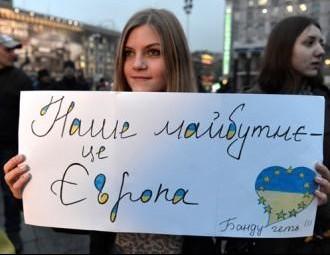Maidan is undergoing transformations, and even more surprises are to come
 photo by EuroBelarus Information Service
photo by EuroBelarus Information Service
International conference “Civil society: analysis of the situation, approaches and development strategies” is being held in Vilnius these days.
The first day of the conference was devoted to the lessons of EuroMaidan – Ukrainian civil society activists and members of the Eastern Partnership Civil Society Forum are participating in the event.
Obviously, current events in Kiev are indicative for the whole region. And even more than that, assumes Uladzimir Matskevich, the head of the Board of the International Consortium “EuroBelarus”, philosopher and methodologist:
- However pretentious it may sound, I would call Maidan an event of world historical importance. Each day I was admiring Maidan and Ukrainians more and more. What you’ve been doing there, - said Matskevich to the Ukrainian participants, - is nothing but a miracle. Starting from the first days it became clear that Maidan can only be compared with the events of 1968, which changed European history, European self-perception. Today Ukrainians demonstrated that we don’t understand something about ourselves, about Europe and its outskirts, about our region, about democracy and the place and role of the civil society in all these processes. Despite the fact that we know a number of formulas, mottos and so on. As one of the fathers of democracy was saying, democracy in based on the ability of common people to create miracles. Maidan and Ukraine showed that this is really so. Not leaders, not some formalized institutions, not parties or organizations.
According to Uladzimir Matskevich, “Maidan opens a new era of democracy, development of civil society and society in general”.
- That is why we have to rethink many things. Ukrainians have demonstrated that they are a nation; not the one that is typical for Europe. And this change in thinking will change politics as well.
Oleg Levchenko, an activist of Maidan’s civic sector believes that “Ukrainians are mature enough to act in that way”.
- I think that the elections will demonstrate who people want to see in power – and it will differ both from today’s as well as from the former authorities. I think that the results of the presidential elections will surprise everyone. People are no longer afraid to call themselves Ukrainians, they are not afraid to call themselves part of the state, they are proud of themselves and are ready to go till the end and stand up to the challenges, whether it is Russia or something else.
Levchenko emphasizes that Ukraine and Maidans throughout the country are heterogeneous, though one feature unites all the participants:
- I realized that people who gather there and stay in the toughest moments are people who are afraid to lose their dignity. This was the most important thing for the people, who took upon themselves a responsibility of being different.
Andrei Kogut, a representative of Maidan’s civic sector, defined “Maidan’s formula” in the following way:
- If each citizen sees that something is wrong and realizes how it can be fixed, he fixes it. This formula untied Maidan from beginning to this day. Everyone was doing what he found important to do here and now – without any instructions.
According to him, Maidan is transforming into a body that controls reforms and is trusted by the population.
- Everything that could have been destroyed was destroyed; only corruption was holding it all together. There is no trust in institutions. There are a number of vital reforms to be taken in the nearest future: the reform of the legal system, the reform of the public prosecutor's office, the reform of the ministry of domestic affairs, decentralization of power, delegating authorities to local agents. And the basis reform, which is that of the electoral legislation. If we don’t change the election system, there is no use to think about some real changes and new political forces.
The arrangement of changes in quite simple: civil activists have already started working with the experts, who already have some groundwork in the above mentioned directions. On the one hand, we are communicating with the parliamentary deputies; besides, we also are contacting ministers for implementing the reforms. We do what we can; and let’s see how the authorities are going to correspond to the suggestions and conditions set by Maidan and citizens.
-
03.01
-
07.10
-
22.09
-
17.08
-
12.08
-
30.09



























